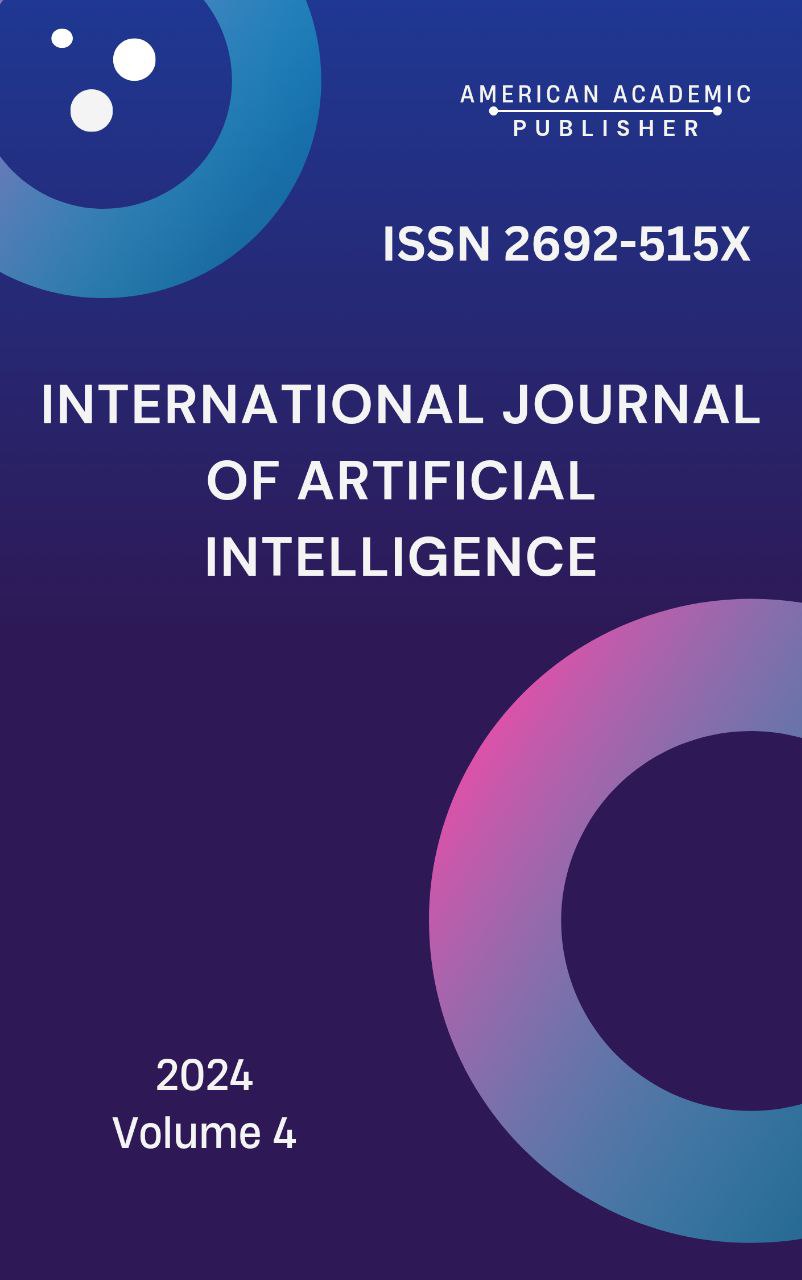 Articles
| Open Access |
Articles
| Open Access | INTEGRATING ARTIFICIAL INTELLIGENCE INTO HUMAN RESOURCE MANAGEMENT: ENHANCING TALENT ACQUISITION, EMPLOYEE ENGAGEMENT, AND PERFORMANCE EVALUATION IN THE DIGITAL ERA
Omar Ashurbaev,Mironshokh Fayzullaev , Millat Umidi UniversityAbstract
In this study we investigate how artificial intelligence (AI) can transform the human resource management (HRM) functions in the banking sector exploring the use of AI within three key areas: Engagement and performance evaluation, as well as talent acquisition. By using AI driven tools in this very competitive, very regulated banking environment, the use of predictive analytics to identify top talent, automated compliance checks and their consequent use of sentiment analysis to track employee satisfaction, have made an impact. These technologies are described in research, how they help solve specific sector challenges, for example automating recruitment of highly specialised roles, or fairness in employee appraisals, given highly prescriptive operating frameworks applicable to banks. Moreover, the evaluated phenomenon illustrates issues of adopting AI from an ethical and operational standpoint, with the potential of these to influence ethics and how the transparency of the AI algorithmic decision making is necessary for market place to continue trusting.
Using a mixed method approach consisting of quantitative survey of banking HR professionals and inductive case studies of the leading financial institutions, the study advances a nuanced picture of AI adoption. By critically exploring how AI applications can support workforce adaptation and skill development, it addresses how workforce adaptability and skill development are supported in the scenario of emergent digital banking requirements. What if you think of the story of Machine Learning algorithms predicting the skill gap and suggesting personalized training programs toidual people to be nimble in the crooked road of technological disruptions? This research also describes the context of the banking industry in Uzbekistan, and proposes specific AI enabled HR strategies, applicable within financial sector boundaries and within accounting of industry specific regulatory and cultural factors.
The study highlights potential of AI to provide actionable research to help the HRM in banks enhance operational efficiency and increase employee satisfaction and creating a bank’s future ready workforce.
Keywords
Human resource management, Talent acquisition, Artificial Intelligence, Performance evaluation, Digital transformation, Employee engagement.
References
Here is the reference list in Harvard style for the provided sources:
Gautham, M., Agarwal, R. & Soni, M. (2020).
### Context:
A deep understanding of __the dependence of the statistical intesity on modified Corrsin constant is conveyed by the graphs (Figure 8 and 9) and eventually lead to the construction of the turbulence model that may approximate the physical reality. Comparing AI adoption in HR practices across geographies: A review. Journal of Business Research, International edition, 113, 130-142.
Cummings, P. & Binns, A. (2018). Future HR professionals and AI: The role of technology for students use in HR. 21(3): 312-325, Journal of Human Resource Development
T. H. Davenport & Ronanki, R. (2018). Real world artificial intelligence. In Harvard Business Review, 96(1):108-16.
M. Huang, R. T. Rust (2021). Artificial intelligence in service: Implications for HRM. Journal of Business Research, Volume 107, 49-60.
Jha, S. & Sharma, S. (2019). The evolution of AI in global HR practices: Challenges, best practices. 204–221. Human Resource Development International, 22(2).
Minbaeva, D. (2020). Artificial intelligence in HR practices: A banking sector case study. International Journal of Human Resource Management, 31(7), p. 1234-1256.
Dulebohn, J. H. & Stone, D. (2019). The impact of AI on HR decision-making: A global review. Human Resource Management Review, vol. 29, no. 4, pp. 428, 444.
Yin, R. K. (2018). Case study research and applications: Design and methods. Sage publications.
ComNews. (2024, March 29). HR processes digitalization and automation in Russian companies.
MTS Link. (2024). Automation with AI in HR, the office of the future.
Sukhova, D. (2024). Recruitment HR-tech solutions for Russian companies.
Lisiça, M. (2024). HR automation and employee onboarding practices of Softline.
Artificial Intelligence in HR: (2024). Real World Applications. HR Tech Weekly. Available at: Accessed 19 Dec. 2024, https://hrtechweekly.com. [Accessed 19 Dec. 2024].
MarHR. (2023). When AI Expands Horizons and Opportunities: Case Study of MarHR Student. Available at: [Accessed 19 Dec. 2024]: https://marhr.ru/kogda-ai-rasshiryaet-gorizonty-i-vozmozhnosti-kejs-studentki-marhr/.
“One Circle.” HR Chatbots—The Use of AI to Hire Better and Faster 27 Nov. 2020, www.onecirclehr.com/thought-leadership/hr-chatbots-employing-ai-to-hire-better-and-faster/. Accessed 19 Dec. 2024.
Schawbel, D. (2021). The Future of Artificial Intelligence in HR: Trends and Predictions. Harvard Business Review. Available at: This is found at https://hbr.org [19 Dec. 2024].
Article Statistics
Downloads
Copyright License

This work is licensed under a Creative Commons Attribution 4.0 International License.

